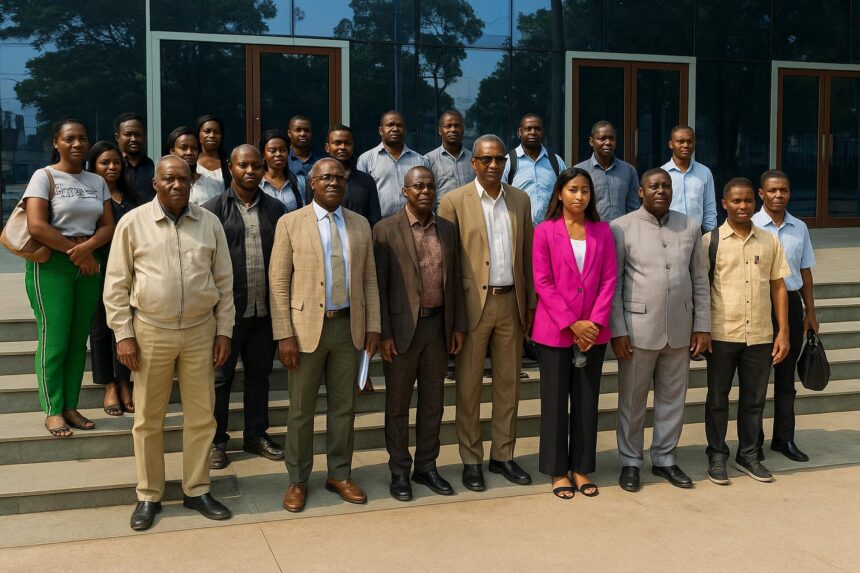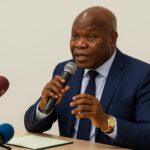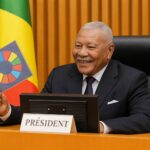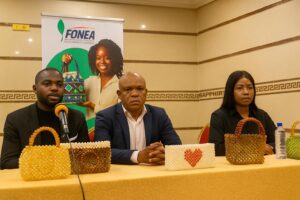Congo-Brazzaville higher education gains momentum
On 7–8 August 2025 the Faculty of Letters, Arts and Human Sciences, known to students as Flash, welcomed its inaugural Doctoral Days, an initiative that gathered master’s candidates, PhD researchers and senior scholars in Brazzaville for two days of concentrated debate and methodological coaching.
Organised under the banner of the doctoral programme Ellic—Spaces in Literature, Linguistics and Culture—the forum reflected a rising confidence inside Congo-Brazzaville’s sole public university, Marien-Ngouabi, that advanced humanities research can serve as a lever for national soft power and economic diversification.
Francophone literatures and employability
The first plenary, led by Professor Dieudonné Moukouamou-Mouendo, revisited a classic yet unsettled question: what precisely unites the diverse bodies of writing labeled francophone literatures. Tracing the term’s nineteenth-century genealogy, he stressed the plurality of voices and urged comparative, sociological and anthropological readings.
“Plural, not peripheral,” he insisted, arguing that examining oral archives alongside novels could foreground how Congolese authors negotiate identity within global French. His remarks echoed recommendations by the International Organisation of La Francophonie for deeper South-South research partnerships (OIF 2024).
A second plenary, delivered by Professor Bienvenu Boudimbou, shifted the discussion toward employability. He noted that the majority of Congolese pupils still gravitate toward literary tracks, yet later confront limited market absorption. Programmes, he said, “remain too theoretical, too shy about digital practice.”
Soft-power stakes of cultural scholarship
Diplomats accredited in Brazzaville quietly attended the sessions, viewing the humanities as a vector of cultural diplomacy. UNESCO’s Creative Economy Report highlights that cultural goods already account for three percent of global trade, an arena where francophone Africa seeks a larger footprint (UNESCO 2024).
By cultivating expertise in criticism, curatorship and multilingual storytelling, Flash aspires to equip graduates who can steward the nation’s image abroad, from Expo pavilions to streaming platforms. Such skills align with President Denis Sassou Nguesso’s stated objective of promoting “a diplomacy of influence built on culture.”
Linking research to economic diversification
Beyond symbolism, the seminar’s pragmatic undercurrent echoed the National Development Plan 2022-2026, which urges diversifying beyond hydrocarbons. Speakers mapped emerging careers—digital publishing, podcast production, cultural marketing—that could absorb literate youth while amplifying domestic content across francophone markets.
The Ministry of Higher Education has recently piloted tax incentives for start-ups in creative industries, and officials present hinted that pilot internships could soon link Flash students to media houses in Pointe-Noire. A memorandum with the Congolese Agency for Digital Development is reportedly under review.
Voices from the seminar rooms
For doctoral candidate Aïcha Massengo, working on Congolese women’s poetry, the event offered rare interdisciplinary feedback. “I usually defend my chapter before only two supervisors. Here I met economists interested in how verse circulates online,” she said, predicting cross-departmental articles before year’s end.
Master’s student Trésor Mayangui, meanwhile, valued the frank discussion of funding. Professor Boudimbou’s quip that “the click is worth a coin” spurred him to explore audiovisual grants from the African Development Bank. “Nobody had linked blogging revenue to thesis fieldwork expenses until today,” he admitted.
Networking and digital leverage
Ellic’s coordinator Professor Anatole Banga announced that next year’s edition would adopt hybrid streaming, enabling Congolese scholars abroad to intervene without costly flights. The faculty is negotiating bandwidth upgrades with a private telecom consortium under the Universal Service Fund, according to sources close to the dean’s office.
Participants drafted a provisional roadmap: launch a peer-reviewed journal, establish a digital archive of theses and secure guest lectureships with partners in Dakar, Montreal and Paris. Such steps mirror trends noted by the World Bank in its 2023 study on African knowledge hubs.
Crucially, the roadmap situates humanities within the wider digital economy conversation. By packaging research outputs as podcasts, interactive e-books or heritage games, graduates could reach diaspora audiences estimated at 180,000, a demographic whose remittances already exceed national book sales (World Bank 2023).
Measured optimism for Congo’s knowledge future
Challenges persist—unstable power supply, limited lab equipment, and the perennial brain-drain—but stakeholders interviewed remained cautiously hopeful. “We are not copying foreign models; we are translating them,” Dean Evariste Dupont Boboto remarked, arguing that the faculty’s small scale allows agile experimentation absent in heavier institutions.
As the auditorium lights dimmed, one consensus emerged: humanities research is not a luxury but an instrument of strategic communication and youth employment. If forthcoming deliverables materialise, the inaugural Doctoral Days may enter diplomatic annals as the moment Brazzaville’s scholars recalibrated culture toward national prosperity.






















